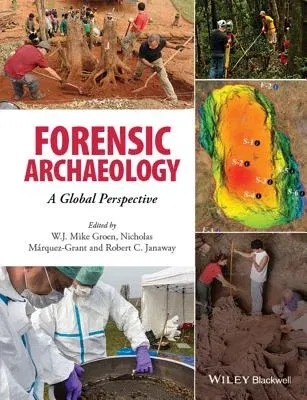W J Mike Groen
(Author)Forensic Archaeology: A Global PerspectiveHardcover, 27 April 2015

Qty
1
Turbo
Ships in 2 - 3 days
In Stock
Free Delivery
Cash on Delivery
15 Days
Free Returns
Secure Checkout

Print Length
616 pages
Language
English
Publisher
Wiley-Blackwell
Date Published
27 Apr 2015
ISBN-10
1118745981
ISBN-13
9781118745984
Description
Product Details
Book Format:
Hardcover
Country of Origin:
SG
Date Published:
27 April 2015
Dimensions:
25.15 x
18.54 x
3.3 cm
Genre:
Archaeological
ISBN-10:
1118745981
ISBN-13:
9781118745984
Language:
English
Location:
Chicester
Pages:
616
Publisher:
Weight:
1202.02 gm